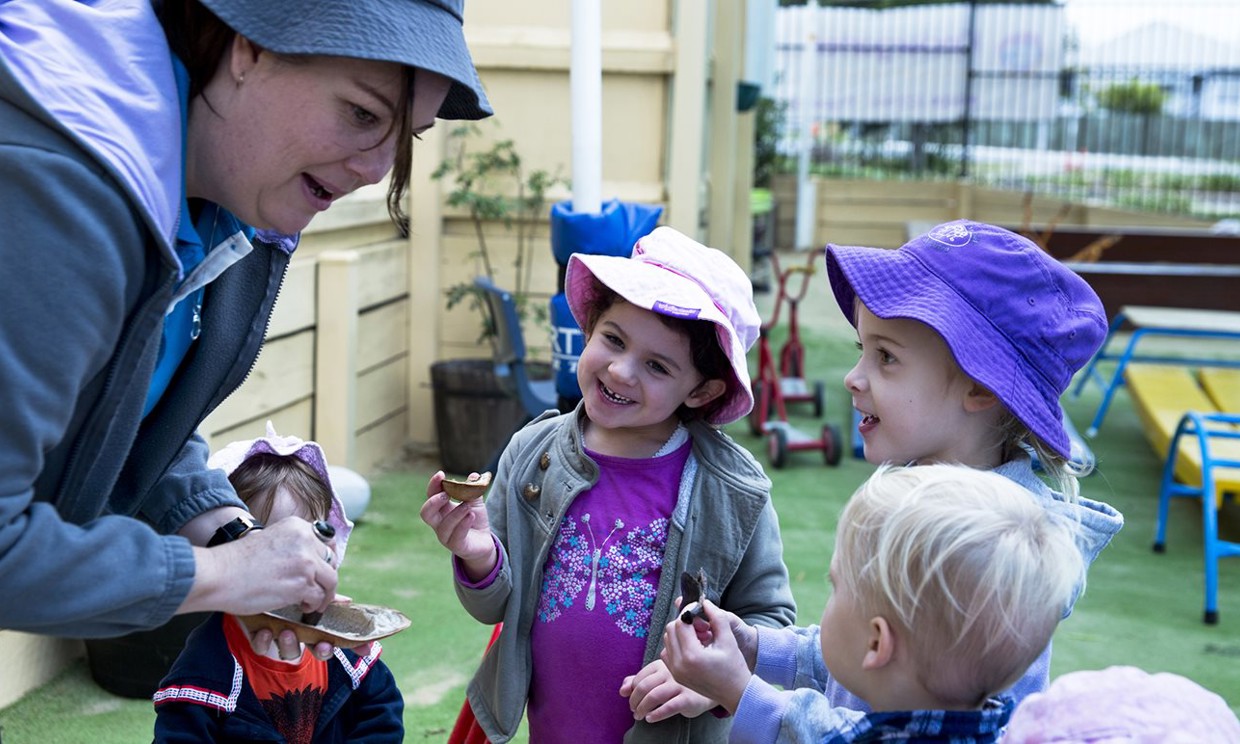Author: Rhyan Panthi, teacher at Goodstart Virginia
Helping young children develop the skills they need to succeed in school and life is one of my main priorities in early education.
As a teacher at Goodstart Virginia, one of the most valuable approaches I’ve found to help develop several of these important skills is the practice of logical reasoning.
Logical reasoning helps with developing cognitive skills, empathy, a sense of self and an openness to trying new things. All of these are valuable for young children, and the worth of possessing these skills as they grow into adults only increases.
So what is logical reasoning all about?
Logical reasoning is about reflecting and understanding decisions. Instead of saying “you shouldn’t have done that”, or “no, that’s not right” to a young child, we’d more likely use terms like “what makes you think that?” or “how do you think you would feel?”
The focus with logical reasoning is on the thought processes behind decisions. By asking a child questions which prompt logical thought, we’re giving them an opportunity to explore how they’ve arrived at an answer or decision.
When making these enquiries, we’re often met with some amazing and imaginative perspectives and reasoning! But rather than try to correct the many common misconceptions of childhood, we use the opportunity to extend their thoughts and introduce new ideas of interest to them.
Another benefit of asking these questions of young children is that they begin to understand and appreciate that an adult is listening to them and is interested in their thoughts and feelings. In time, this helps children to become active listeners when they are engaged with their peers as well as develop a sense of empathy for the experiences and feelings of others.
We use logical reasoning concepts to help us achieve many things with children, like:
Helping young children develop the skills they need to succeed in school and life is one of my main priorities in early education.
As a teacher at Goodstart Virginia, one of the most valuable approaches I’ve found to help develop several of these important skills is the practice of logical reasoning.
Logical reasoning helps with developing cognitive skills, empathy, a sense of self and an openness to trying new things. All of these are valuable for young children, and the worth of possessing these skills as they grow into adults only increases.
So what is logical reasoning all about?
Understanding thoughts, feelings and actions
Logical reasoning is about reflecting and understanding decisions. Instead of saying “you shouldn’t have done that”, or “no, that’s not right” to a young child, we’d more likely use terms like “what makes you think that?” or “how do you think you would feel?”The focus with logical reasoning is on the thought processes behind decisions. By asking a child questions which prompt logical thought, we’re giving them an opportunity to explore how they’ve arrived at an answer or decision.
When making these enquiries, we’re often met with some amazing and imaginative perspectives and reasoning! But rather than try to correct the many common misconceptions of childhood, we use the opportunity to extend their thoughts and introduce new ideas of interest to them.
Another benefit of asking these questions of young children is that they begin to understand and appreciate that an adult is listening to them and is interested in their thoughts and feelings. In time, this helps children to become active listeners when they are engaged with their peers as well as develop a sense of empathy for the experiences and feelings of others.
Which skills can be developed using logical reasoning?
We use logical reasoning concepts to help us achieve many things with children, like:
- Modifying undesirable behaviour – when a child has done something hurtful to someone, we avoid the temptation to chastise them. Rather, we focus on helping them think about their decision and understand the impact by asking questions like “how do you think you would have felt if that happened to you?”
- Building empathy – prompting a child to justify the reasoning behind a decision often opens the way for empathetic thinking.
- Developing hypotheses – in adult life, this is akin to good judgement and taking calculated risks. We help young children develop this skill by developing and testing hypotheses. We might ask things like “what do you think the character in this book is feeling?”, “what do you think this character will do?”, or “what do you think will happen when we put this rock into water – why?”
- Openness to new opportunities – when a child says “I don’t know” or “I don’t want to”, it’s often in response to something that is new to them that they feel uncertain about. By practicing logical reasoning, we can help children think through probable consequences and realise there is no harm in trying something new.


